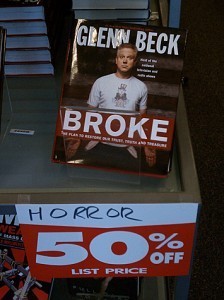Kasey Shoemaker's Blog, page 3
July 30, 2011
Book Review- River Marked
 River Marked by Patricia Briggs
River Marked by Patricia Briggs
My rating: 3 of 5 stars
Okay, as anyone can tell by now, I am a huge fan of this series. However, I simply was not as into this particular installment as I had been the other ones. Perhaps it was because I had gotten on the Mercy bandwagon a bit late, so I was spoiled to go through the books as fast as I could read them without waiting for the next one to come out. On the other hand, I had pre-ordered this one, and, I was more than a little sad when the publication date was pushed back. Maybe I ruined it for myself by waiting so long. Maybe it couldn't have possibly lived up to my expectations.
However, I have another theory. As much as I hate to say this, perhaps it's time for this series to come to a close. I'd miss it. I really would. But, Mercy and Adam are married. Samuel's issues have been resolved. And, if this book is any example of what I can expect in the future, the other characters just became obsolete. Much of the story, actually 90% of the story focused on Mercy and Adam's honeymoon, which was rudely interrupted by the river devil. Of course, the suspense was high, the danger intense, the mystery interesting, and the battle fast-paced, but where was everyone else? Mercy and Adam, as much as I love them, can't sustain an entire book on their own, especially when the sexual tension has mostly turned to newlywed sex. That of course is all well and good and even welcome after sticking with the couple for five books, but I got so weary of the river and the trailer that I was thrilled when they went to a Wal-Mart. Not a good sign. I know I'll endure a storm of Mercy fans telling me that this was one of the best in the series and that they'll never tire of reading them. But, as a writer myself, I can sense a story coming to a close. I only hope the publishing company doesn't milk the series so long that it loses its audience entirely.
If you haven't read it yet, I recommend Briggs's other series, the Alpha and Omega series. There are two installments of it so far, not including the novella that started it, and the third book is due out in January 2012. For now, I'll try to refrain from pre-ordering it or searching for any details about it on Google.
View all my reviews
Book Review- Time's Edge
 Time's Edge by J.M. Dattilo
Time's Edge by J.M. Dattilo
My rating: 5 of 5 stars
I really couldn't put this book down. The adventures of Michael and Kate had me reading into the night. This book lets the readers know right away that there is so much more to the main characters, but the pacing doesn't drag out the mystery or ruin it in a far-too-early exposition. The suspense, well-rounded characters, and the humor definitely kept me turning the pages. Even if you're not a huge fan of science fiction, you will love this book for its elements of fantasy, adventure, and romance. I would recommend this to anyone who is looking to get invested in a great new series because believe me, you'll be eagerly awaiting the next installment.
View all my reviews
July 26, 2011
Myths about self publishing (#1)
Since I self published my debut novel a few weeks ago, I have fielded a sea of questions. I know not everyone is as interested in the evolving trends in the publishing industry as we writers are, but I was more than a little surprised by a few common misconceptions. So, in no particular order, I will be addressing what I have noticed are some myths about self publishing.
Myth # 1: Authors who self publish will not make as much money as those who go with traditional publishing.
Because publishing companies buy books and sometimes contract more than one at a time providing the writer with a substantial advance, one would naturally conclude that more money can be made with traditional publishing. That's not entirely accurate.
While six-figure advances are largely a thing of the past (unless you're the next J.K. Rowling or Stephanie Meyer), let's work with that golden number for starters. Say you've written one great book and have two more planned for the same series. And, say you're fortunate enough to have caught the eye of one of the big six and that publishing company give you a $100,000 advance or even $150,000/$200,000 for all three books in that series. At first, that sounds great. You can quit that terribly unsatisfying desk job and tell everyone you're moving onto bigger and better things. Good for you! However, it'll be at least a year, maybe more, until your book makes it to the bookstores. But, that's okay because you're getting published. So, say you received that very high advance of $200,000 for all three books in January of 2012. Book one gets to bookstores around January 2013. Books two and three make it to stores January 2014 and January 2015 respectively. Your royalties are maybe 10%, if you're lucky. So, for every $7.99 copy that sells either on Kindle or paperback, you get about 80 cents. But, wait: They call it an advance for a reason. You don't get that paltry 80 cents until your books have made the company back its $200,000 it paid you.
So, under the best circumstances, that $200,000, actually $170,000 after the agent takes his or her cut, has to last you about three to four years. Even at three years, that a little over $56,600 a year. How much was that unsatisfying desk job paying you? Were you getting health benefits? But, say everything goes wonderfully and that great publishing company marketed your book like crazy, and you make them their advance back within the first year, you're still only getting 80 cents a copy. By the way, 10% royalties are high. For first books, they're closer to 7%. That's considered a success story, and if you're determined to hold out for traditional publishing, I really hope that's your story.
Here's the other version. You took your $200,000, actually $170,000, quit your unsatisfying desk job, threw yourself a party, and started working on books two and three. Because you worked on them full time, which was always your dream, you finished them both within a year. The publishing company now owns them. They paid you for them, after all. Now, it's one year later and you've eaten a little into your advance because you had bills, your own insurance to buy, and a life to lead. Maybe you have about $120,000 left, conservatively speaking. That's okay because it's January 2013, and your book is about to hit stores. Yea! However, the publishing company that saw so much promise in your work a year ago now has its sights set on what it thinks is the next Harry Potter. You don't get an end cap, a table, or a poster in the window of Barnes and Noble. They're saving that promotion for their new golden book. Your book gets a few precious inches on the new fiction shelf, if you're lucky.
Ninety days later, your book has had disappointing sales, and the bookstore sends the copies back to the publisher. Three months is all the time they give your book to prove its worth. Then, it's off the shelf, possibly spending a sad few weeks on the 50% off shelf on its way out the door. I hope you took a picture. Now, one year and three months later, you're left with a dwindling advance and three books, the rights of which are owned by the publishing company, not you. Also, if your book's sales disappointed the publishing company, you can be assured that you'll have to start over from scratch with a brand new book and start querying agents and editors again. Remember how much fun it was the first time?
You have to look at the money made from self publishing a bit differently. There is no advance, no big book release party, no New York Times book review, and no visiting it at the bookstore. It's just you, your computer, and that illusive ranking graph from Amazon. It's a lot less exciting in the beginning. I remember checking Amazon over and over again after I put it up waiting for the paperback and the Kindle pages to build and link to each other. I didn't want to announce it until it was really easy to find on the site. When they were, I hugged my husband and announced it on Facebook. That was it.
I set my own price, and with self publishing, I get 70% of the sales price of the Kindle version. This is where a lot of publishing companies mess up. They price the Kindle about the same sometimes slightly lower than the paperback. People who own Kindles prefer their books to be priced the same as iTunes. Fair or not, that's the expectation. My Kindle version is priced $3.47. My print-on-demand company provided this lovely formula that let me calculate my royalties for the paperback based on my price, and I set it at $11.99 because it provided me with nearly the same royalties as the ebook, about $2.50. I decided to try to get the same amount of money for each version, even though I realize the bulk of my sales after friends and family will be ebooks.
Just because my royalties are higher does not mean that I'll make more money at the onset of my book release, but I will make it right away instead of paying back a publishing company that's already taking 90% of my book sales. Its success is based on the quality of the book, the attractiveness of the cover, and the aggressiveness of my marketing, not necessarily in that order, and I have an indefinite amount of time to make it an Amazon best seller while retaining the rights to my work.
Some book lovers will be broken hearted to see the bookstores close, one after another, and I too will miss browsing the shelves for a new glossy paperback. However, when the newest technology of ebooks finally eats the bookstores, and all that remains are websites and e-readers, I'll be a major player in a very exciting market, possibly even a best seller. How much money is that worth?
July 25, 2011
Is there a downside to self publishing?
As the fad of authors publishing their own work continues to gain popularity and momentum, so does one prevailing question: What will this trend do to the books on the current market? I am not talking about the inevitable downfall of bookstores and the recent closure of all Borders. What I am referring to is the notion that if the ivory towers of the big six no longer stand between an aspiring writer and his or her dream of publication, what does that do the quality of books now available? Some would instinctually say that the quality of books would decrease significantly. This article would certainly lead one to think so. While the general tone of the article is negative and implies a flood of mediocre writing flooding the market, it does make a valuable point:
With the volume of new work hitting the Internet each day, it stretches credulity to think that so many people have been laboring in their rooms for so many years and now is their moment to shine. Then again, readers aren't exactly being asked to commit a fortune to trying out many of these new authors — 99 cents is less than you're likely to pay for a daily newspaper these days. Lower prices have made readers more tolerant of less-than-perfect prose (hey, you get this newsletter for free, so I'm sure you can tolerate a mistake or three).
However, this same argument was vocalized when journalism began to be slowly replaced by bloggers. The interesting fact about that development was that many local news blogs had more thorough coverage of news because they weren't divided between multiple assignments and covering for a downsized staff. Every emerging trend is faced with opposition claiming that its the total ruin of what came before it. And, yes, some developments lead to the collapse of other industries- word processor to computer, vhs to dvd, and cd to mp3. However, that is no reason to fight such growth. However, the major concern on the part of people who write articles like the one mentioned in this post is that writers will no longer be vetted and just anyone can release a book. Oh the humanity! Artists releasing their work to the world without the political loopholes and industry hoop-jumping. As a recently self-published author, I have my own strong opinion about the validity of such a method. However, putting that aside, as a reader, I feel that it's a positive move that publishing companies are no longer the gate keepers. So what that I have to do the vetting and the filtering? Yes, it's more likely that I'll stumble upon something that hasn't been properly edited. However, I will also see more original work. And the trend I am most excited about is that writers will be setting the trends in their genres, not the big six. So, the reason that I mentioned the article was not just to argue against it, but also to point out the comments on it. Here is my personal favorite (actually two comments by the same writer):
Yes, Brittany is correct in that the market will correct any writer that puts out less-than-stellar work. Sure readers might buy the first book out of curiosity, but the second or third? More than likely not. Think of it as selection of the fittest.
I also found Carol's comment regarding "those in the industry" amusing as well. The time when the bulk of us have to care about what "those in the industry" thinks is well over.
RJ is correct. The readers are driving the market now and will buy whatever they want, from whoever they want. "Those in the industry" are in a panic right now, scrambling to adjust to catastrophic royalty collapse.
So those "in the industry" can have an issue with the route by which I published my books and not take my work seriously (which they frequently do) while I watch my royalties climb. I am totally cool with that

As I like to say… "Dinosaur, meet mammal."
I may be small, but I am fast and adaptable
And a follow-up…
I was just wondering who are these "safeguards" put up for? The reader? And why exactly must the reader be protected?
Now with sampling and instant returns is the reader at risk at all?
If they don't like the book, for whatever reason, they can get their money back. Far more simply than they ever could through a bookstore.
I find it amusing that so many people are worried about "the reader," as if they were fragile and vulnerable, even though "the reader" is the one embracing self-published authors the most and driving indie authors such as John Locke into the #1 spot on Amazon.
I have many "traditionally published" friends and I can tell you that I am making far more royalties then they are per month.
#justsayin
June 30, 2011
Reasons to Go With a Big Publishing Company
A fellow writer friend of mine introduced me to a great article about the… ahem… benefits of going with one of the big six publishing companies. Allan Douglas sums up the pros very well.
1) Rejection is so rewarding. You enjoy spending a year or more querying agents and wallpapering your office with the politely worded notices that you aren't quite right for them at this time, serving as an everlasting memorial to your inadequacy.
2) You enjoy the challenge of rewriting your book to conform to the socio-political stance of the publishing house that has seen promise in your work.
3) You want to savor the prolonged anticipation and expectation of knowing your book is in the works and will be made available to the general public by stretching it out for a year or a year and half if possible.
4) An up-front cash payment of several thousand dollars is enough of a carrot to induce you to give up all rights to your work, trusting that the Big House will be actively seeking every possible opportunity to sell said work.
5) Because, should said work sell well enough to cover your advance and produce royalties, 5% to 7% of sales is certainly generous compensation for the paltry amount of labor and thought you put into the creation of one book. After all – how much sweat and angst can it take to produce a book that sells well?
6) Self publishing, like micro computers and cell phones, is a fad; merely a passing fancy with technology. Once the hoopla wears off, all reputable authors will be pounding on the doors to the hallowed halls of the Big 6 begging forgiveness for their sinful dalliance with this slick-talking upstart.
As I work to release Silver Vengeance to you, I'll be posting my personal Top Ten Reasons to Self Publish. Stay tuned.
June 14, 2011
Women in Fantasy Fiction

We need more Hermione Grangers.
We need female heroes, not victims. I'm noticing an upsetting trend in fantasy novels, and I need to speak out for Hermione, Princess Lea, Wonder Woman, and Buffy. I need to say something for the incredible, strong, feminine, smart women in fiction.
Let me start by saying that I am an enormous fan of the Mercy Thompson Series by Patricia Briggs. However, I was more than a little disturbed by the turn of events at the end of book three. Spoiler Alert: If you are planning to read the Mercy Thompson Series or the Fever Series (though I recommend against the latter), read no further.
At the end of book three of the Mercy books, she was raped. It was handled tastefully, and while it ultimately really sucked for her, her love interest, and the reader, it was one of those moments that you understand why the writer went that direction. Poor Mercy spent most of the fourth book recovering, and we as readers grew with her. However, I just finished the third book of the Fever Series by Karen Moning, and I am sickened over what the writer did to the female character, a character who was already grieving the loss of her sister, stranded in a foreign country, and involved with an enigmatic, sexy, but sometimes violent love interest. When I read the second book, Bloodfever, I should have seen it coming. I should have known. As I neared the end of Bloodfever, I was willing to go with the development between the female and controlling male lead. I wasn't thrilled that their first intimate moments came on the tail end of a very violent fight between her and the villain. I was even okay with the fact that the six hundred pages of sexual tension led them to a somewhat playful physical fight turned heated make-out session.
But, by the end of the third book, Faefever, when our "heroine" was gang raped, I wanted not only my money back, but my time. Better yet, I wanted a mind wipe. Really, book? Really? The next day, I went to the bookstore in search of a great fantasy novel, one I could confidently read with the renewed hope that the woman wouldn't be raped in the next installment.
 I picked up the first book of A Ministry of Peculiar Occurrences Series – Phoenix Rising. The main character wears a bullet proof corset. I'm feeling pretty excited to start it. But, before I do, I wanted to address this trend in women in fantasy novels.
I picked up the first book of A Ministry of Peculiar Occurrences Series – Phoenix Rising. The main character wears a bullet proof corset. I'm feeling pretty excited to start it. But, before I do, I wanted to address this trend in women in fantasy novels.
They're sexy, powerful, and usually scantily clad. I'm no prude, but I was perturbed that I spent three books of the Fever series reading about this character's enormous rack, just to have her supple sexuality be used against her. What are these books promoting? In several other fantasy novels, that I won't bother to specify, the female characters dress like and are mistaken for prostitutes. Sex and fantasy books go together splendidly, so do power and sex, so my issue is how did we get to the point where sexy, powerful women are reduced to their attire and their assets and then victimized, thus robbing them of control over their sexuality? It's one thing to put the main character through traumatizing events. It's another to traumatize her, strand her, torture her, involve her with a man who plays rough, and then have her raped by a gang of fae.
Women have come so far in fantasy wrting. But, these steps backwards are disheartening. I, along with many other readers, have decided to never pick up anything by the author of the Fever series, and I have broadened my search for awesome female characters in fantasy novels, which is probably why I chose to write one myself.
June 10, 2011
Silver Vengeance Cover Art
So, I have decided to self publish my first fiction novel, and I'll soon be posting a great deal about how I came to that decision. But, today, I wanted to share my book cover. Working closely with the artist and seeing the completed work has definitely been one of the more exciting aspects of self publishing a novel. Silver Vengeance will be out very soon, but for now, I want to leave you with its very awesome cover.

May 5, 2011
Oh, that dirty bard…
Who says that Shakespeare is just for the literary snobs of the world?
In his time, Shakespeare wrote for the plebeians, today's blue collar type. Today's version of fans of "Jack Ass" or the show "Roseanne" would in the 16th century gather in primitive versions of mosh pits at the business end of the slanted stage. And, when Julius Caesar was slaughtered like a holiday pig, the fake blood poured down the stage for a a gore-loving crowd. His plays were messier than "Saw" and more vulgar than "American Pie."
Don't believe me? | Check out this post which highlights some of his…. less kosher lines.
Not so boring or dry anymore, is he?
May 1, 2011
Oops… Funny Grammar Mistakes
Call me a bit snarky, but Huffington Post put it up first. I love these grammar mistakes, and I thought I'd share the laugh with my readers.
April 17, 2011
A Sign of our Times
 Borders is one of those stores that I will not likely know how much I'll miss until they're all gone. I've always preferred Barnes and Noble for their better coffee and more plush armchairs, not to mention what I always thought was a better selection of books. But, I have meandered into a Borders or two, and luckily for me, most of the ones in my local area are still open. But, like many other stores that died slow and tortured deaths (like Circuit City), it's really only a matter of time before they're all distant memories. In my mall, there's a Border's Express, and every time I walk by it, I hear Meg Ryan's voice in my head as she's lamenting about the future of her once charming bookstore in "You've Got Mail." She writes to Tom Hanks's character that it'll eventually be something really sad, like a Baby Gap. I wonder if the one in the mall will turn into a Yankee Candle or one of those stores dedicated entirely to hats and caps.
Borders is one of those stores that I will not likely know how much I'll miss until they're all gone. I've always preferred Barnes and Noble for their better coffee and more plush armchairs, not to mention what I always thought was a better selection of books. But, I have meandered into a Borders or two, and luckily for me, most of the ones in my local area are still open. But, like many other stores that died slow and tortured deaths (like Circuit City), it's really only a matter of time before they're all distant memories. In my mall, there's a Border's Express, and every time I walk by it, I hear Meg Ryan's voice in my head as she's lamenting about the future of her once charming bookstore in "You've Got Mail." She writes to Tom Hanks's character that it'll eventually be something really sad, like a Baby Gap. I wonder if the one in the mall will turn into a Yankee Candle or one of those stores dedicated entirely to hats and caps.
It can't be helped. I'm thankful that the digital book trend hasn't killed all the bookstores. I'm sad about the fallen victims, but I can appreciate the sense of humor of those responsible for the picture above and the compilation found in this site.
Here are a few of my other favorites:
All humor aside, for now, we should appreciate the still existing bookstores, patronize them, happily consume their caffeinated drinks, and curl up in the plush armchairs with a book plucked off the new-in-hardback shelf. We don't know how much longer we'll have to enjoy them.







